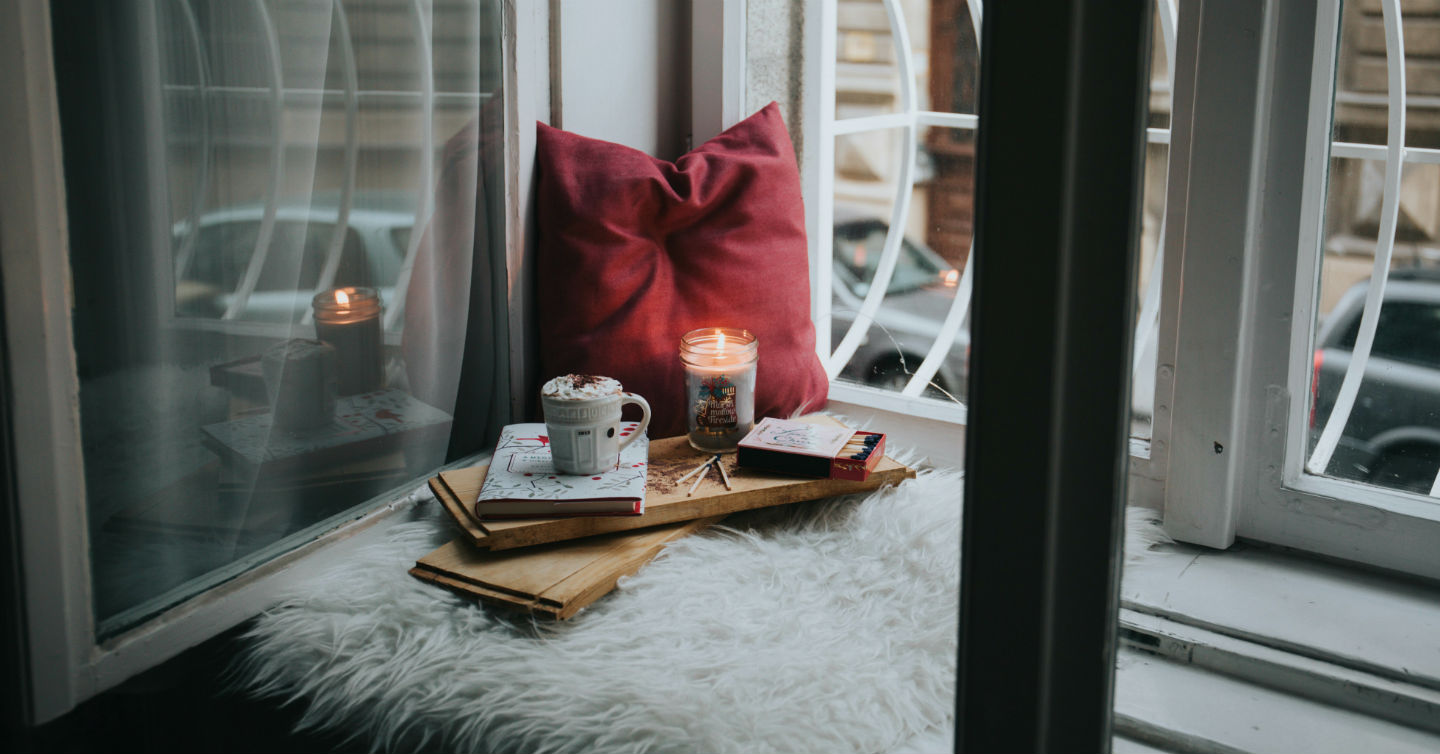Stronger Together: Self-Care during #SaferAtHome

9 Tips for Self-Care During Quarantine
by Jennifer Steinhoff, M.D. – Ascension Medical Group
Accepting New Patients
Since the #SaferAtHome order was signed by Governor Tony Evers in March, plenty of information has entered the public sphere about how to stay healthy and avoid unnecessary exposure to the new coronavirus and COVID-19.
Today, we’d like to talk about a different way to stay healthy during the pandemic, however – self-care. Self-care means proactively taking care of your own physical and mental health, happiness and wellbeing.
Here are nine great ideas to help take care of yourself while our normal routines are on hold due to the pandemic.
1. Make a schedule
Your usual routine has likely changed due to different work hours, children being home from school, your gym being closed or your favorite unwind activities being canceled.
Having a schedule helps you to prioritize the tasks in your day and set aside time for the things that you need to do. If you have children that are now home from school, having a schedule for your home will encourage them to do school work during specific times and avoid arguments if multiple children are sharing equipment or workspaces in your home.
2. Move your body daily
We talk about this a lot, but exercise is important for physical and mental health.
Exercising 30-60 minutes most days of the week is ideal. There are a ton of structured and unstructured activities to choose from too. The following are all great options.
- Walking
- Running
- Biking
- Playing tag with your kids outside
- Doing yoga
- Taking part in an online exercise class or aerobics video
One of our favorite ideas we’ve heard is setting up an exercise course with your kids outside. To do this, create activity stations around your yard/home. For instance, your stations could include 10 jumping jacks, jump rope for 30 seconds, 10 frog jumps, 10 pushups, 10 sit-ups, forward plank for 20 seconds, etc. You can adjust the activities based on the abilities of the participants.
3. Find time for quiet
Quiet time is essential for reflection and development of your own inner-life. Below are a few ideas to help guide or add structure to your quiet time.
- Writing in a journal
- Prayer
- Meditation
- Relaxing in a dark room
Certain phone apps like Calm provide guided meditation and relaxation. If you’re not using a meditation or mindfulness app, you may find leaving your phone to charge in another room to be the best way to enjoy uninterrupted quiet.
4. Take 15 minutes for yourself
If you’re stuck indoors with family members, you may be discovering the solo time you previously took for granted. Taking 15 minutes for yourself at least once a day is a necessary self-care strategy. During this isolation-in-isolation time, you can read a book, take a short walk outside, sit outside, work on a creative project or take a warm bath. The time is yours, do what’s best for you.
5. Connect with family and friends
If you have extra time with your spouse or children that you normally would not have, use it to do things you might not get to do otherwise.
- Eat breakfast or dinner together
- Exercise as a family
- Have a game or movie night
- Put a puzzle together
- Have your child perform with a musical instrument
- Get the kids together for a play, complete with costumes
- Bake cookies as a family
- Read and tell stories
- Talk to family and friends on the phone or by video calling
- Enjoy playing with your pets
Whatever you do that brings you closer is a great way to get the most out of these unique circumstances. When the #SaferAtHome order ends, you may just long for more time with the people you care about most.
6. Get more sleep
If your work schedule has changed or you are now working from home, you may find yourself with more time that used to be devoted to commuting. Try to get adequate sleep every night. If you are busier at work than usual, sleep will help you to recover and stay healthy.
Changes to your daily schedule will also likely affect your sleep routine. Creating an updated sleeping schedule can help you set aside enough time to get deep and peaceful sleep.
7. Eat fruits and vegetables
Getting the necessary nutrients from foods helps your body to function optimally and helps support your immune system.
Roasted vegetables last for a few days in the refrigerator. Frozen and canned options are also available and can be helpful while you are minimizing trips to the store. If you’re feeling ambitious, you may even want to plant your own herb or vegetable garden to really save trips to the store.
8. Limit news exposure
It is important to keep up to date by watching, reading or listening to the news from a reliable source once or twice a day.
It can be overwhelming, however, if you are constantly hearing or reading updates on the disarray of the world due to the new coronavirus and COVID-19. Balance the time you spend on news websites or in front of your TV with time to decompress and release the tension of the world’s news.
You can also follow YouTube channels like Some Good News and websites like Positive.News to stay in the know while remaining hopeful.
9. Be kind
The final piece of advice here is, perhaps, the most important. During this unprecedented time, it’s crucial to be kind to yourself.
Dealing with change and uncertainty is difficult. Do the best that you can. No one is perfect and, while goals and ambitions are important, listening to what your body and mind need – in some cases, it may just be a night to not do anything – is incredibly important to self-care.
Don’t forget to be kind to others. Everybody is dealing with varying degrees of uncertainty, anxiety, pressure and fear. A thoughtful action or nice word can go a long way.
About the Author

If you have questions about self-care or would like more information on wellness strategies, contact us today. If you’re looking to read more we’ve published in our Stronger Together series, featuring health experts from Ascension Medical Group, be sure to check our past issues.
Making Healthy Choices During the #SaferAtHome Order



